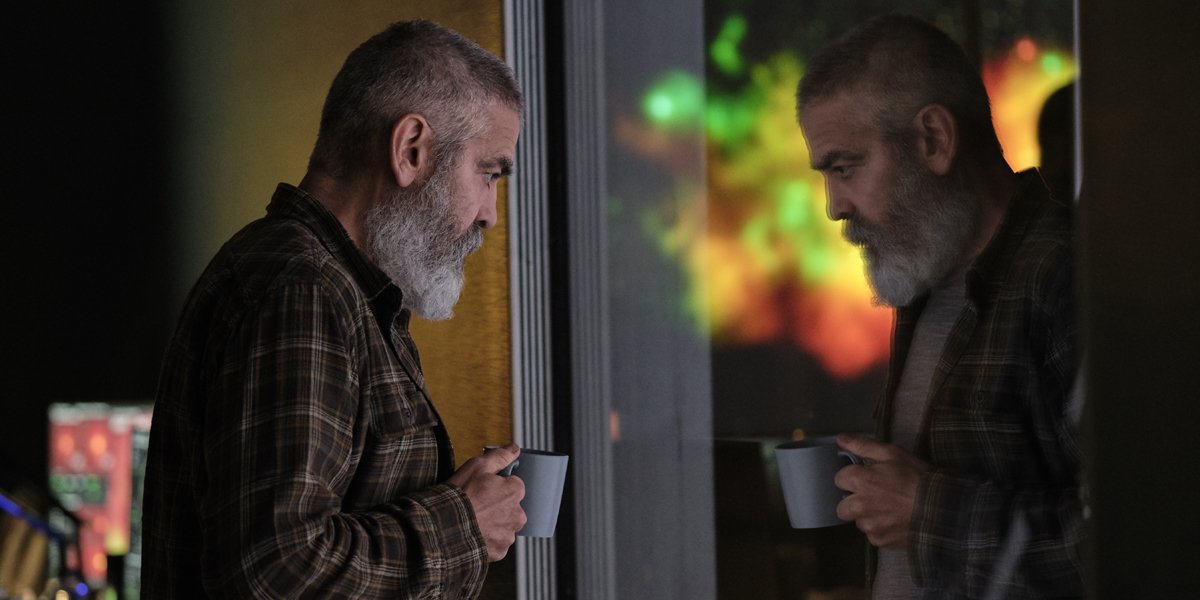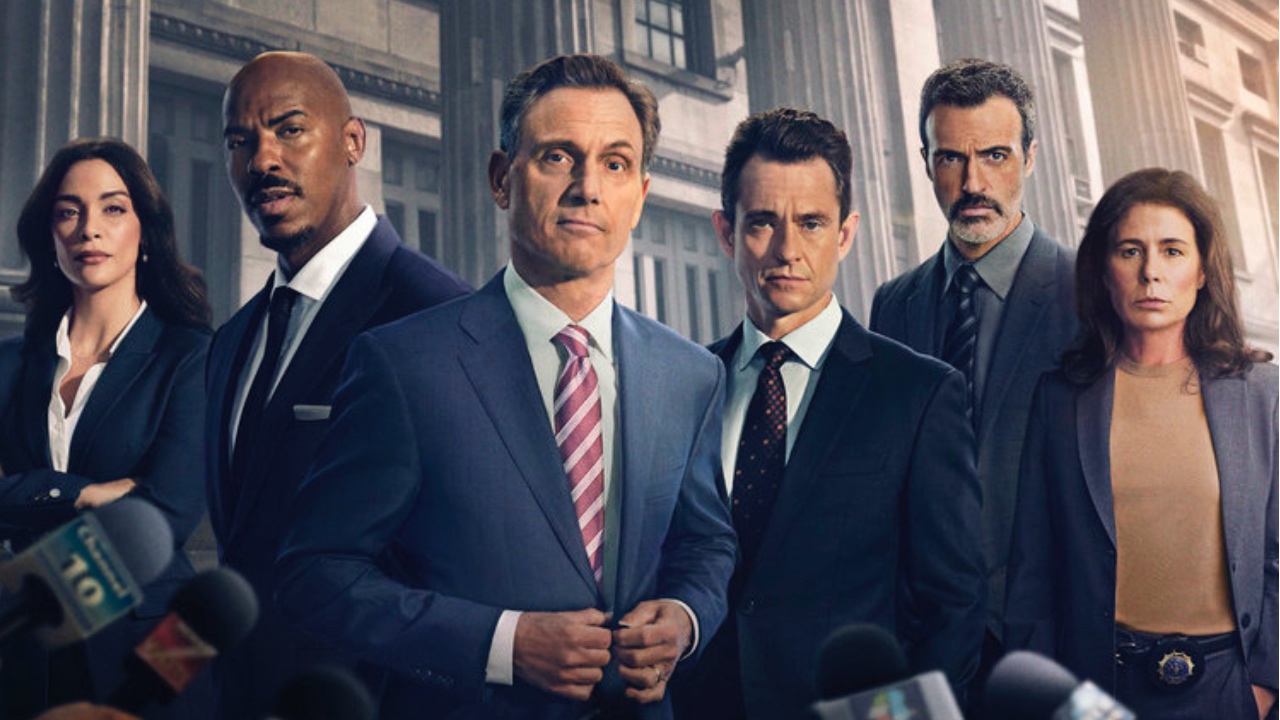His one time as Batman notwithstanding, George Clooney has a mostly positive relationship with the science-fiction genre. Brad Bird’s Tomorrowland is a bit middling, and Steven Soderbergh’s Solaris but has a tough time standing side-by-side with Andrei Tarkovsky’s original, but Alfonso Cuaron’s Gravity is phenomenal, and he gets points for being an executive producer on Richard Linklater’s awesome adaptation of Philip K. Dick’s A Scanner Darkly. It’s obviously not a stunning track record, but it’s good enough that news of his first directorial venture into the arena perks one’s ears.
Disappointingly, with The Midnight Sky, an adaptation of the novel “Good Morning, Midnight” by Lily Brooks-Dalton, Clooney belies his reputation within the genre. It’s a film that’s well shot, with the director/star clearly taking some inspiration from Cuaron for one space-set action sequence, but mostly it’s a tired drama built on familiar story beats that, in retrospect, is rendered occasionally nonsensical in moments thanks to its bad twist ending.
Scripted by The Revenant co-writer Mark L. Smith, the film follows two storylines – one set on Earth during its final days of existence following an unspecified “event,” and the other in the far reaches out outer space as a vessel called the Aether makes its way back home. At the center of the former is Dr. Augustine Lofthouse (George Clooney), a scientist with a terminal cancer diagnosis who chooses to stay behind as the remaining human population boarded transports heading into the cosmos looking for a new home. He opts to go down with the ship, so to speak, while at a base in the Arctic Circle so that he can communicate with research teams returning to the planet and tell them to turn around.
What deeply messes with this plan is A) the realization that his signal isn’t strong enough at his facility, and B) the discovery that he’s not alone, as he discovers a mute girl named Iris (Caoilinn Springall) has been hiding out with him.
Meanwhile, the crew aboard the aforementioned vessel (Felicity Jones, David Oyelowo, Tiffany Boone, Demian Bichir, Kyle Chandler) is eager to make their way back to Earth, having just discovered a hospitable planet called K23, and knowing nothing about what’s been going on at home during their absence. The journey is impeded when an incident results in the ship veering off course, requiring them to risk the danger of flying through uncharted space.
The movie goes back and forth between the two stories, following Lofthouse and the girl as they brave the elements going to another station that can provide a better signal, and the astronauts experience the perils of the galaxy.
The Midnight Sky offers nothing in its story we haven’t seen before.
What doesn’t work out so well for The Midnight Sky is that said elements and perils don’t create any impressive or original conflicts that make the individual excursions standout in a genre where these kinds of stories are boilerplate. On terra firma there are issues with making shelter on shaky ground, and blinding snowstorms, and out in space there are clouds of space debris/meteoroids and technical failures (prepare for a new round of “Spacewalk = Death”) . There isn’t any interpersonal conflict to mine, as there is harmony between all of the characters in both halves of the story, so you’re just left wanting more from the terrors of creation. And is that too much to ask for in a movie about the end of the world?
This isn’t the forum to discuss it in-depth, but it should also be recognized that the curveball that the film tries to throw in the third act is a widely errant wild pitch. The best twists are those that add extra layers to a movie, and make the rewatch experience because you possess a kind of inside information. The Midnight Sky does the opposite of that, as some confusing events make even less sense, and others are revealed as artless misdirects. As the credits roll, you try and piece things together in your head, but they don’t add up as they should.
It’s nice to have George Clooney back as a movie star, and he delivers a solid performance.
The movie sports George Clooney’s first feature film appearance in about four-and-a-half years, and it’s understandable why he took on the part. Augustine Lofthouse is a rich character. Playing the last man on Earth is one thing (and Clooney gets in his requisite pensive stares before finding the young girl), but there is also the double-whammy of forced paternity and a deadly illness. Being the talented and consummate performer that he is, the actor does a great job with the part – though it’s also not a turn one would rank among the best or most memorable of his career. It’s work you expect, but it’s also not particularly special.
Felicity Jones, David Oyelowo, and the rest of the Aether crew aren’t given much to work with.
The ugly dark side of George Clooney’s prime role is that Augustine Lofthouse has more personality than every member of the supporting cast combined. The relationship between the characters played by Felicity Jones and David Oyelowo is notable because she is pregnant with his child, but beyond that all of them share the exact same disposition: determined astronaut willing to risk everything to get back home. As alluded to, there is never any disagreement or clashes within the group, which means that you don’t even get access to deeper thoughts via strong personal opinions. All we get is a running “joke” with members of the crew suggesting names for Jones’ baby.
Though it was always developed as a Netflix production, The Midnight Sky certainly has the look of a big budget blockbuster, with some impressive set pieces and sharp visual effects and production design, but it all proves to be pretty aesthetics propping up a shallow narrative. It gets credit for ambition, but that ambition ultimately doesn’t take it incredibly far.

Eric Eisenberg is the Assistant Managing Editor at CinemaBlend. After graduating Boston University and earning a bachelor’s degree in journalism, he took a part-time job as a staff writer for CinemaBlend, and after six months was offered the opportunity to move to Los Angeles and take on a newly created West Coast Editor position. Over a decade later, he's continuing to advance his interests and expertise. In addition to conducting filmmaker interviews and contributing to the news and feature content of the site, Eric also oversees the Movie Reviews section, writes the the weekend box office report (published Sundays), and is the site's resident Stephen King expert. He has two King-related columns.

